Speaking Truth to Power
| Join our FREE Email Mailing List |
![]()
For Email Marketing you can trust

Norman Solomon Portal
http://www.theportlandalliance.org/solomon
Active Community,
Cartoons, Cartoons by Shannon Wheeler, Clyde List, & Steve Amy
Commentary, Critiques,
Letters, and more!
|
Speaking |
|---|

Navigation:
FrontPage / Activism /
BlogPortal / Calendar /
Ongoing Calendar Events
Donate / Flyer/
Pictures on Picasso:
picasaweb.google.com/
theportlandalliance /
PDX Music /
Poster / Subscribe /
Place Ad / Ad Rates /
Online Ads /
Advertising /
Twitter / News! /
Previous Issues /
Blog/ Myspace /
Facebook1 / Facebook2
Waterfront Blues Fest
Alliance on YouTube:
youtube.com/theportlandalliance
Features:
Joe Anybody!
Active Community /
A Few Words /
Arts & Culture /
Book Reviews! /
Breaking News /
Cartoons / Steve Amy /
Too Much Coffee Man /
Community Calendar /
Cover The Real News! /
Fifth Monday Labor Radio!
Jobs / Labor History /
Letters / Music /
NewsBytes /
Poetry/
Mike Hastie Poetics
Progressive Directory /
Secret Society /
Viewpoints & Commentary
Columns:
William Beeman /
Ellen Brown /
Shamus Cooke /
Tom Engelhardt /
Kucinich /
Michael Munk /
Myers / William Reed /
Mark Schwebke /
Norman Solomon /
Vorpahl /
Lawrence S. Wittner
Partners: ACLU
AFD / AFL-CIO
Alliance for Democracy
AMA / Backspace
B-MediaCollective Bread&Roses /
CIO / CAUSA/
CLG / Code Pink
Common Dreams /
CWA / DIA /
Democracy Now /
First Unitarian Church
FSP /ISO /
Jobs w\ Justice /
KBOO /Labor Radio /
LGBTQ / MRG / Milagro /
Mobile T's Cover the News
Mosaic / Move-On /
NWLaborPress
Occupy / OEA /
Occupy PDX /
Oregon Peace & Justice /
Peace House
Peace worker /
PCASC / PPRC /
Right 2 Dream Too /
Sisters of The Road
Street Roots / Skanner /
SocialistWorker.org /
The Nation / TruthOut /
The 99%
Urban League /
VFP / Voz
We Are Oregon
Whitefeather
Witness for Peace /
Topics: A-F
Arts & Culture /
AIPAC / Beatles /
Books /
Bradley Manning /
Cartoons /
Civil Rights / Coal /
Death Penalty /
Department of Home Security /
Drones /
Economic Justice /
Education /
Election 2012 /
Fascism /
Fair Trade / F-29 /
Environment /
Film / Fluoridation
Foreclosure /
Topics: G-R
Health Care / Homeless / Iraq
J-Street / Jill Stein /
Justice Party / Middle East /
Music /
National Security Administration
Occupy Blog / Peace /
Persian / Police /
Post Office / Quotes
Topics: S-Z
STRIKE! / Theatre /
The Pongo Fund /
Torture / TPP /
Tri-Met / Union /
Unionresource / VDay /
Viewpoints
Visual Arts
Voices in Action
War & Peace /
Women / Writing /
WritingResource
Yell




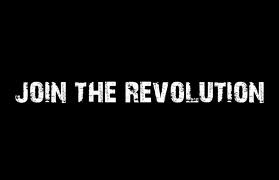



Michael Munk PDX Historian


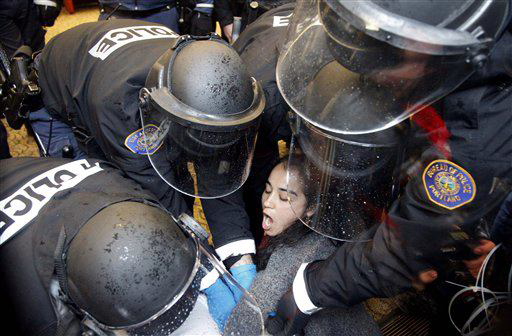

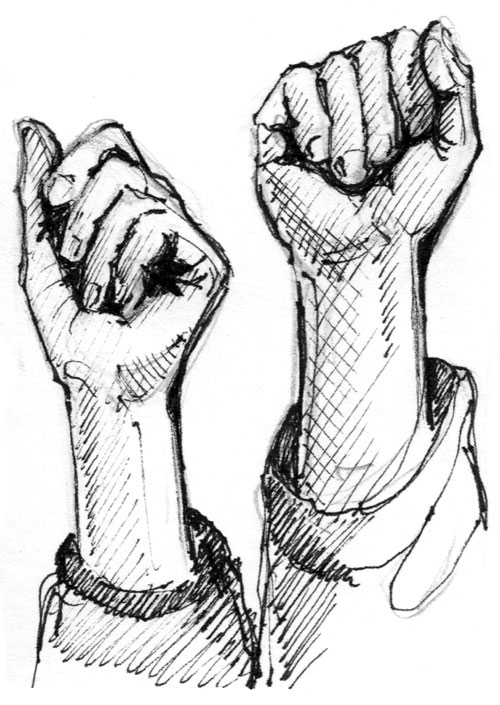
Joe Biden Likes Republicans...
Because He’s So Much Like Them
By Norman Solomon
Recent criticism of Joe Biden for praising Dick Cheney as “a decent man” and Mike Pence as “a decent guy” merely scratches the surface of what’s wrong with the current frontrunner for the Democratic presidential nomination. His compulsion to vouch for the decency of Republican leaders -- while calling Donald Trump an “aberration” -- is consistent with Biden’s political record. It sheds light on why he’s probably the worst Democrat running for president.
After several decades of cutting corporate-friendly deals with GOP legislators -- often betraying the interests of core Democratic constituencies in the process -- Biden has a big psychological and political stake in denying that the entire GOP agenda is repugnant.
At the outset of his Senate career, Biden lost no time appealing to racism and running interference for huge corporate interests. He went on to play a historic role in helping to move the Supreme Court rightward and serving such predatory businesses as credit card companies, big banks and hedge funds.
Biden’s role as vice president included a near-miss at cutting a deal with Republican leaders on Capitol Hill to slash Medicare and Social Security. While his record on labor and trade has been mediocre, Biden has enjoyed tight mutual alliances with moneyed elites.
The nickname that corporate media have bestowed on him, “Lunch Bucket Joe,” is wide of the mark. A bull’s-eye is “Wall Street Joe.”
With avuncular style, Biden has reflexively used pleasant rhetoric to grease the shaft given to millions of vulnerable people, suffering the consequences of his conciliatory approach to right-wing forces. Campaigning in Iowa a few days ago, Biden declared that “the other side is not my enemy, it’s my opposition.” But his notable kinship with Republican politicians has made him more of an enabler than an opponent. Results have often been disastrous.
“In more than four decades of public service, Biden has enthusiastically championed policies favored by financial elites, forging alliances with Wall Street and the political right to notch legislative victories that ran counter to the populist ideas that now animate his party,” HuffPost senior reporter Zach Carter recounts. Biden often teamed up with Senate Republicans to pass bills at the top of corporate wish lists and to block measures for economic fairness.
In the mid-1970s, during his first Senate term, Biden repeatedly clashed with Sen. Edward Kennedy, the chair of the Judiciary Committee, who wanted to rein in runaway corporate power. “Biden became an advocate for corporate interests that had previously been associated with the Republican Party,” Carter reports. As he gained seniority, Biden kept lining up with GOP senators against antitrust legislation and for bills to give corporations more leverage over consumers and workers. “By 1978, Americans for Democratic Action, the preeminent liberal watchdog group of the time, gave Biden a score of just 50, lower than its ratings for some Republicans.”
Opposing measures for racial equity and economic justice, Biden’s operational bonds with GOP leaders continued. Carter reports that “on domestic policy -- from school integration to tax policy -- he was functionally allied with the Reagan administration. He voted for a landmark Reagan tax bill that slashed the top income tax rate from 70 percent to 50 percent and exempted many wealthy families from the estate tax on unearned inheritances, a measure that cost the federal government an estimated $83 billion in annual revenue. He then called for a spending freeze on Social Security in order to reduce the deficits that tax law helped to create.”
Biden came through for corporate power again in November 1993 when he joined with 26 other Democrats and 34 Republicans to win Senate passage of NAFTA, the trade agreement strongly opposed by labor unions and environmental groups. In mid-1996, when Congress approved President Clinton’s “welfare reform” bill, Biden helped to vote the draconian measure into law. It predictably had devastating effects on women and children.
Throughout the 1990s -- from tax-rate changes that enriched the already-rich to deregulating banks with repeal of the Glass-Steagall Act to loosening government curbs on credit default swaps -- Biden stood with the Senate’s Republicans and the most corporate-aligned Democrats. Carter sums up: “Biden was a steadfast supporter of an economic agenda that caused economic inequality to skyrocket during the Clinton years. . . . Biden voted for all of it.”
Biden led the successful push to pass the milestone 1994 crime bill, engaging in racist tropes on the Senate floor along the way. By then, he had become a powerful lawmaker on criminal-justice issues.
In 1991, midway through his eight years as chair of the Senate Judiciary Committee, Biden ran the hearings for Supreme Court nominee Clarence Thomas that excluded witnesses who were prepared to corroborate Anita Hill’s accusations of sexual harassment. “Much of what Democrats blame Republicans for was enabled, quite literally, by Biden: Justices whose confirmation to the Supreme Court he rubber-stamped worked to disembowel affirmative action, collective bargaining rights, reproductive rights, voting rights,” feminist author Rebecca Traister writes.
Early in the new century, Biden wielded another weighty gavel, with momentous results, as chair of the Senate Foreign Relations Committee. In 2002, congressional Democrats were closely divided on whether to greenlight the invasion of Iraq, while Republicans overwhelmingly backed President George W. Bush’s mendacious case for invading. Biden didn’t only vote for the Iraq invasion on the Senate floor in October 2002. Months earlier, he methodically excluded dissenting voices about the looming invasion at key hearings of the Foreign Relations Committee.
While his impact on foreign policy grew larger, Biden’s avid service to financial giants never flagged. One of his top priorities was a crusade for legislation to undermine bankruptcy protections. Biden was a mover and shaker behind the landmark 2005 bankruptcy bill. Before President Bush signed it into law, Biden was one of just 14 out of 45 Democratic senators to vote for the legislation.
The bankruptcy law was a monumental victory for credit-card firms -- and a huge blow to consumers, including students saddled with debt. As happened so often during Biden’s 36 years in the Senate, he eagerly aligned himself with Republicans and a minority of Democrats to get the job done.
Now, running for president, Biden has no use for candor about his actual record. Instead, he keeps pretending that he has always been a champion of people he actually used his power to grievously harm.
In ideology and record on corporate power, the farthest from Biden among his competitors is Bernie Sanders. No wonder Biden has gone out of his way to distance himself from Sanders while voicing high regard for the wealthy. (I was a Sanders delegate to the 2016 Democratic National Convention and continue to actively support him.)
Biden’s ongoing zeal to defend and accommodate Republicans in Congress is undiminished, as though they should not be held accountable for President Trump even while they aid and abet him. Days ago on the campaign trail -- while referring to Trump -- Biden asserted: “This is not the Republican Party.” And he spoke warmly of “my Republican friends in the House and Senate.”
All in all, it’s preposterous yet fitting for Joe Biden to claim that Republicans like Dick Cheney and Mike Pence are “decent.” He’s not only defending them. He’s also defending himself.
________________________________
Norman Solomon is cofounder and national coordinator of RootsAction.org. He was a Bernie Sanders delegate from California to the 2016 Democratic National Convention and is currently a coordinator of the relaunched independent Bernie Delegates Network. Solomon is the author of a dozen books including War Made Easy: How Presidents and Pundits Keep Spinning Us to Death.
Democrats Are Afraid Of Alexandria Ocasio-Cortez Too.
And That’s A Good Thing.
[This article was originally published by HuffPost.]
By Norman Solomon
In the last few days, both Politico and the New York Times have reported that freshman Democratic Rep. Alexandria Ocasio-Cortez has ruffled the feathers of fellow congressional Democrats. Chief among the reasons for the tension? Ocasio-Cortez’s apparent support for progressive primary challenges against centrist Democrats.
It’s one of the most significant ideas the young New York congresswoman has brought with her to Washington.
That’s because turning the Democratic Party into a truly progressive force will require turning “primary” into a verb. The corporate Democrats who dominate the party’s power structure in Congress should fear losing their seats because they’re out of step with constituents. And Democratic voters should understand that if they want to change the party, the only path to do so is to change the people who represent them. Otherwise, the leverage of Wall Street and the military-industrial complex will continue to hold sway.
These days, with fingers to the wind, incumbents often give lip service to proposals that have wide public support nationwide, such as Medicare for All (70 percent) and higher taxes on the wealthy (76 percent). But big gaps remain between what most congressional Democrats are willing to fight for and what their constituents actually want.
Credible primary challenges ― or even just the threat of them ― can work wonders. Instead of merely asking a member of Congress to do the right thing, activists can convey a much more persuasive message: Do the right thing or we’ll replace you with someone who will.
Alexandra Rojas, executive director of Justice Democrats (a group that played a major role in Ocasio-Cortez’s election victory), emphasizes that “safe” Democratic districts shouldn’t stay safe for just any Democrat. The goal is to “hold representatives who throw diverse working-class voters under the bus accountable.”
Justice Democrats communications director Waleed Shahid wrote in a Jan. 6 mass email that “real on-the-ground organizing work” can bring “a new generation of progressive leaders like Alexandria Ocasio-Cortez into the Democratic Party.” He added: “We believe there are leaders just like Alexandria in every district ― who just need a little bit of encouragement and support.”
While largely ideological, the battle lines are also attitudinal and behavioral. Democrats need to replace passive liberals with real progressive boat-rockers. That’s how Northern California Rep. Ro Khanna has distinguished himself from the longtime incumbent he defeated in 2016, Mike Honda. And attitude was a big reason why, in Boston last year, Ayanna Pressley was able to win a primary victory over senior Rep. Mike Capuano.
Both Honda and Capuano hardly legislated as centrists ― both leaned left and earned antiwar credentials ― but they lost to challengers who insisted that just checking progressive boxes wasn’t enough. There’s a crying need for highly assertive leaders who think and act outside the box. During his first two years in office, Khanna has repeatedly put forward wise alternatives to Democratic leadership on domestic issues as well as foreign-policy matters ranging from Syria, Yemen and Koreato U.S. relations with Russia.
Yet Ocasio-Cortez and Pressley were the only two candidates to oust Democrats from Congress in primaries last year, a fact that underscores how difficult it is to win a primary against an entrenched incumbent. It also reflects the routinely unmet need to devote sufficient advance planning, time and resources to the mission.
What’s needed is rigorous long-term organizing to make “primarying” an effective weapon ― identifying which incumbent Democrats to confront and then implementing visionary yet realistic campaigns to beat them. That’s what Ocasio-Cortez did to defeat the fourth-ranking Democrat in the House, Joe Crowley, last summer.
Continue reading "Democrats Are Afraid Of Alexandria Ocasio-Cortez Too. And That’s A Good Thing." »
Today (Thursday) is the release date for “Democratic Autopsy: One Year Later.” It comes with an opening introduction that makes it self-explanatory from the outset. You’re welcome to publish this new report in full. If you do, please include a link to the original webpage: https://democraticautopsy.org/democratic-party-in-crisis-one-year-later/
__________________________________________
Published by The Nation
Democratic Autopsy: One Year Later
By Norman Solomon, Jeff Cohen, Pia Gallegos, Sam McCann and Donna Smith
In October 2017, a team of progressive researchers published “Autopsy: The Democratic Party in Crisis,” which probed the causes of the disastrous 2016 election defeat. The report came in the wake of the party leadership’s failure to do its own autopsy. In a cover story for The Nation, William Greider wrote that the “Autopsy” is “an unemotional dissection of why the Democrats failed so miserably, and it warns that the party must change profoundly or else remain a loser.”
Now, “Democratic Autopsy: One Year Later” evaluates how well the Democratic Party has done in charting a new course since the autumn of 2017. This report rates developments in each of the seven categories that the original report assessed.
The upsurge of progressive activism and electoral victories during the last year has created momentum that could lead to historic breakthroughs in the midterm elections and far beyond. Realizing such potential will require transforming and energizing the Democratic Party.
Corporate Power and the Party
Somewhat worse
The Democratic Party has implemented modest reforms, but corporate power continues to dominate the party. In 2017 and early summer 2018, the Democratic National Committee voted to refuse donations from a handful of toxic industries that contradict the party’s platform—though the ban on fossil-fuel money was effectively repealed in August 2018. Meanwhile, the DNC and the Democratic Congressional Campaign Committee continue to freely take big corporate donations.
A test for Democrats on Capitol Hill came this year when the GOP successfully worked with powerful bank lobbyists to weaken the Dodd-Frank Act (under the guise of helping small community banks). More than one-third of Senate Democrats joined the effort; many were recipients of significant banking donations. In the House, 33 Democrats joined most Republicans to pass the measure; journalist David Dayen reported that nearly all of the 33 identify as corporate “New Democrats.”
In September, House minority leader Nancy Pelosi preemptively boxed in any potential left-populist agenda on Capitol Hill by backing reinstatement of a “pay-go” rule to offset all new spending with tax increases or budget cuts. A former legislative director for three Democrats in Congress, Justin Talbot-Zorn, responded with an article for The Nation pointing out that “bold progressivism and ‘pay-go’ fiscal conservatism are mutually exclusive.” He added: “The existential challenge of climate change demands that we fully overhaul our energy and transportation infrastructure in a short period of time. The issues of America’s rising inequality and frayed social contract—including stagnant wages, unaffordable college, and exorbitant health care can only be fixed with major new investments.”
After writing a recent analysis for The Guardian that looked at how Democratic leaders act on economic issues in states (from California to Connecticut) that they politically control, David Sirota put his conclusions in a tweet: Democrats in blue states “have used their power to block single payer & a public option, enrich Wall St, subsidize corporations, slash pensions, lay off teachers, promote fracking & engage in pay to play corruption.”
For the Democratic Party, a crucial disconnect remains between rhetoric about corporate influence and subservience to it.
Race and the Party
Mixed developments
In the summer of 2018, Democratic National Committee chair Tom Perez told a predominantly black audience: “We lost elections not only in November 2016, but we lost elections in the run-up because we stopped organizing.… We took too many people for granted, and African Americans—our most loyal constituency—we all too frequently took for granted. That is a shame on us, folks, and for that I apologize. And for that I say, it will never happen again!”
During the last 12 months, voters of color have been key to notable electoral wins. But the party has a long way to go to fulfill Perez’s promise.
In the November 2017 Virginia gubernatorial election, Democrat Ralph Northam “won three-quarters of the votes overall” in racial-minority neighborhoods, The Washington Post reported. “Margins grew by 10 percent in Hispanic neighborhoods.” Black voters turned out in higher numbers than they had before. Unfortunately, Northam’s campaign spending priorities were distressingly similar to the party’s 2016 behavior. Groups like BlackPAC and New Virginia Majority handled essential local black organizing, but had a difficult time securing adequate resources.
Alabama’s special election for a Senate seat tells a similar, slightly more encouraging story. Democrat Doug Jones defeated Republican Roy Moore, a man accused of pedophilia and with a history of racist remarks. Jones won 96 percent of the black vote, accounting for 29 percent of total votes cast—more than the state’s 27 percent black population. BlackPAC and other groups, including local NAACP chapters, organized and knocked on more than 500,000 doors with a tailored message addressing criminal-justice reform, education, and health care. The DNC also contributed to operations, spending around $1 million on engaging black and millennial voters. Jones, like Northam, spent big on advertising aimed at white voters.
Donald Trump’s assault on immigrants has mobilized some in the party to be stronger on immigrants’ rights. Yet congressional Democrats were seen as having sold out Dreamers in their budget negotiations with Republicans. An April 2018 poll found that, while 40 percent of Hispanics believe Democrats care about Dreamers, 54 percent believe they’re “using this issue for political gain.”
Likewise, the Democratic Party must do much more to reform the police and justice systems. Eighty percent of Democrats want reform and 87 percent want to decrease the prison population. Running for Philadelphia district attorney as a comprehensive reformer, Larry Krasner showed that these desires for change could be mobilized into a winning campaign; turnout for his November 2017 election was much higher than in previous DA elections. Krasner went on to implement policies such as dropping marijuana charges and dismissing problematic prosecutors in the DA’s office.
Such policy approaches, coupled with grassroots organizing, enabled police accountability advocate Randall Woodfin to win the Birmingham, Alabama, mayoral race in 2017 and enabled progressive Democrat Earnell Lucas to win the race for Milwaukee County, Wisconsin, sheriff in August 2018. These campaigns suggest a path forward for Democratic candidates—where the priority is to inspire voters and maximize turnout rather than to woo “persuadable” Republicans.
Young People and the Party
Mixed developments
The Democratic Party still isn’t offering a bold vision that can excite young adults, a demographic known for not voting much. Looking to the 2018 midterms, the party put out its “Better Deal for Our Democracy” platform. This is a modest step forward—especially the “Crack Down on Corporate Monopolies” provisions—but missing is a focus on the bread-and-butter issues that can materially affect young people’s lives, such as redirecting resources from our bloated military toward popular programs for free college education and Medicare for All.
Young people, more than their older counterparts, are increasingly against obscene military budgets and US wars. But citizens with those views are without powerful representation in Washington. Sixty-eight percent of House Democrats and 85 percent of Democratic senators voted for the record-breaking 2019 military budget of over $700 billion, including expansion of the US nuclear arsenal.
On the issue of paying for college, party leaders have made a bit of progress. But instead of taking a clear stance in favor of free public college tuition—something a strong majority of Democrats support—congressional Democrats proposed a law in July that would subsidize community colleges only and work to “make college more affordable by reducing debt and simplifying financial aid,” as The Washington Post reported. It’s a tepid approach.
Like a growing number of successful candidates for local and state offices as well as congressional seats, most Democratic presidential contenders for 2020 have learned to push some compelling, simple policy measures. But the Democratic leadership is still using a 1990s-era playbook of technocratic half-measures that don’t inspire—or bring out to the polls—America’s youth.
Voter Participation and the Party
Somewhat improved
The depressed turnout that cost Hillary Clinton the 2016 election was due to both voter suppression efforts by Republicans and the Democratic Party’s own inability to mobilize its base. The party has made some progress on both counts.
To diminish turnout, GOP strategists keep targeting people of color, the young, and others apt to cast ballots for Democrats. The DNC’s response has grown more robust in the past year, with the creation of the “IWillVote” program to register new voters and fight voter suppression. The initiative has provided grants in 41 states and territories, aiming to reach 50 million voters by November.
The party has also supported restoring felons’ right to vote. In April, New York Governor Andrew Cuomo pledged to restore suffrage to felons on parole. In Florida, Democratic gubernatorial candidate Andrew Gillum and party leaders are supporting a ballot measure to restore felons’ voting rights.
Meanwhile, automatically registering everyone to vote has emerged as a popular and practical way to address discriminatory voter restrictions. In 2018, eight states and the District of Columbia approved or began implementing automatic voter registration. These laws were virtually nonexistent three years ago, but now 13 states and DC have them.
Yet most party leaders have remained hesitant to promote other clearly popular policies. And voters in marginalized communities often see scant difference between the two major parties. The Democratic Party could dramatically boost voter participation by mobilizing around progressive proposals that are broadly popular, such as higher taxes on the wealthy, Medicare for All, a $15 minimum wage, stronger environmental protections, public transportation, and criminal-justice reform.
The Democratic Party routinely fails to take full electoral advantage of such public opinion—a major factor in its fundamental lack of credibility with voters. A Quinnipiac poll in March 2018 showed just 31 percent of the country had a positive view of Democrats—down from 37 percent four months earlier and 44 percent a year earlier, according to CNN polls. Voter turnout falls short when many are left doubting that the Democratic Party will make good on its progressive rhetoric.
Social Movements and the Party
Mixed developments
From the party-platform struggles of 2016 through the “Summer for Progress” coalition convened by Our Revolution in the summer of 2017, the DNC seemed tone-deaf to the policy demands of its base. When Summer for Progress activists marched to DNC headquarters in Washington, they were met outside the front door by barricades.
But since mid-2017, many party leaders have been pulled along by the grassroots. The House of Representatives recently saw the formation of a Medicare for All caucus, with at least 70 members. Even ex-President Obama recently got on board. A year ago, a Vox headline summed up the momentum: “The stunning Democratic shift on single-payer: In 2008, no leading Democratic presidential candidate backed single-payer. In 2020, all of them might.”
Student survivors of the mass shooting at Florida’s Marjory Stoneman Douglas High School became leaders of an intense new push for gun control. Within six weeks, the #NeverAgain movement helped organize the March for Our Lives in Washington—with 800 solidarity events across the country—and a national voter-registration drive. Though most congressional Democrats had been avoiding or downplaying the gun-control issue, it became hard to ignore this youth movement.
Another youth-energized groundswell, the climate-justice movement, was dealt a slap in the face by the DNC’s reversal on accepting donations from the fossil-fuel industry. A 350.org co-founder said: “This sort of spineless corporate pandering is why Democrats keep losing.”
This has been a banner year for successful primary campaigns by progressive Democrats nationwide allied with organizations such as Our Revolution, Justice Democrats, Democratic Socialists of America, People’s Action, Democracy for America, Citizen Action, Working Families Party and Progressive Democrats of America, to name just a few groups that knocked on doors and e-mail inboxes all year. In New York State, there was the defeat of powerhouse Representative Joe Crowley by 28-year-old Alexandria Ocasio-Cortez and then a progressive deluge that unseated six “Independent Democratic” state senators—corporatists allied with the GOP and Democratic Governor Cuomo. If there’s a “blue wave” in November, much of the credit will belong to grassroots groups.
How did the Democratic Congressional Campaign Committee react to this grassroots energy? Often by intervening on behalf of establishment primary candidates against progressives, as in Colorado’s sixth district and in Texas’s seventh district (where the DCCC publicly attacked progressive candidate Laura Moser). Social movements have the ability to energize the Democratic Party, but not if blocked by party leaders.
War and the Party
Somewhat worse
Chants of “No More War” from delegates at the 2016 Democratic National Convention gave voice to sentiments that still resonate through the party’s base and the broader US public, notably in communities with higher rates of military sacrifice. While Trump’s 2016 victories in swing states may have been aided by his posing as a foe of protracted war, his administration’s Middle East policies have exposed that masquerade. Unfortunately, the positions of Democratic leaders on endless war and military spending offer little alternative.
Few Democrats in Congress are willing to strongly challenge the unaccountable military budget, which soaks up most discretionary spending that could be redirected toward the party’s proclaimed domestic agenda. During federal-budget negotiations early this year—with Trump requesting a huge Pentagon-budget increase—Nancy Pelosi boasted in an e-mail to House Democrats: “In our negotiations, Congressional Democrats have been fighting for increases in funding for defense.” The office of Senate Democratic leader Chuck Schumer declared: “We fully support President Trump’s Defense Department’s request.” Months later, an overwhelming majority of House and Senate Democrats supported the massive 2019 “National Defense Authorization Act” of $716 billion.
Trump has a dangerous admiration for authoritarian leaders. Democrats need to condemn such admiration without succumbing to reckless bellicosity.
The United States and Russia possess 93 percent of the world’s nuclear weapons. Yet many Democratic leaders seem oblivious to the threat of armed conflict with Russia—a peril profoundly understood by Democratic presidents during the height of the Cold War. Reacting to evidence of Russian meddling in the 2016 US election, numerous Democrats engaged in extreme rhetoric, calling it an “act of war” and “equivalent” to Pearl Harbor. Democratic leaders have rarely acknowledged the crucial need for “a shift in approach toward Russia” including “steps to ease tensions between the nuclear superpowers,” in the words of an open letter calling for “Election Security and True National Security,” released this summer.
On matters of war and peace—for instance, the 17-year war in Afghanistan and the Trump team’s extremely one-sided Israel-Palestine policy—top Democrats have offered few alternative policies. They’ve made scant objections to Trump administration actions that a director at Amnesty International USA, Daphne Eviatar, has described as “hugely expanding the use of drone and airstrikes, including outside of war zones, and increasing civilian casualties in the process.”
The party leadership has routinely been absent in the face of a humanitarian catastrophe in Yemen caused primarily by the US-backed Saudi war. In March, Bernie Sanders, Democrat Chris Murphy, and Republican Mike Lee forced a vote on their Senate resolution to end US military support for the Saudis in Yemen. In the face of White House opposition and indifference among Democratic leaders, it went down to defeat (55-44) thanks to ten Democratic “no” votes. With the disaster continuing to worsen in Yemen, the House Democratic leadership reportedly dragged its feet while progressive first-term Congressman Ro Khanna persistently led a bipartisan effort to get a vote on a similar measure; finally, in late September, Khanna was able to introduce the resolution with some high-level party support.
Democrats often denounce the GOP for immoral and extremist domestic policies favoring the powerful. The party’s failure to challenge such foreign policies is a moral and political tragedy.
Democracy and the Party
Somewhat improved
Efforts to democratize the Democratic Party made some progress in August 2018 when the full DNC voted to bar superdelegates from voting for the presidential nominee on the first ballot. This reduction in the power of superdelegates grew out of anger among Bernie Sanders supporters about DNC favoritism for Hillary Clinton. In the end, the reform passed with much support from the Clinton wing of the party and a major assist from DNC chair Tom Perez.
Contrary to claims made by superdelegate defenders, the reform moved toward greater racial diversity at the national convention. In 2016, the Pew Research Center found that 20 percent of superdelegates were black and about 36 percent were people of color; numbers provided by the Hillary Clinton campaign showed that convention delegates as a whole were more diverse than superdelegates—25 percent black and 50 percent people of color.
The DNC’S encouraging action on superdelegate reform contrasts sharply with the DNC’s failure to act on a proposal by its Unity Reform Commission to establish a Financial Oversight Committee that would present an annual report on the DNC budget to the entire DNC, so that it could assess the effectiveness of expenditures and staff, as required by the DNC’s Bylaws. The current Finance Committee—entirely appointed by the DNC chair—conducts no such evaluations. A Financial Oversight Committee could help achieve what the DNC still lacks: transparency and accountability in how DNC money is spent.
To get closer to living up to its name, the Democratic Party should rely on a broad base of small donors and refuse donations from corporations, particularly those with interests adverse to the party’s platform. The DNC’s reversal of its ban on fossil-fuel donations was a step backward.
This summer, the DNC voted in reforms to promote more openness and accessibility in presidential primaries and caucuses. The reforms urge state parties to work with their state government to combat voter suppression and implement measures such as same-day party switching and same-day registration. An extreme example of antidemocratic obstacles is in the state of New York, where voters must declare their party affiliation more than six months in advance.
Barriers to democracy inside the Democratic Party have obstructed efforts to make the party a powerful vehicle for progressive change. During the last year, grassroots pressure has reduced some of those barriers. Looking ahead, a truly democratic Democratic Party could profoundly revitalize the politics of our country.
______________________________________
Norman Solomon is a journalist with ExposeFacts.org, a project of the Institute for Public Accuracy; the author of War Made Easy; and a co-founder of RootsAction.org.
Jeff Cohen is the founder of the media watch group FAIR and co-founder of RootsAction.org.
Pia Gallegos is the Chair of the Adelante Progressive Caucus of the Democratic Party of New Mexico.
Sam McCann is a writer and researcher whose recent projects include Michael Moore’s Fahrenheit 11/9.
Donna Smith is the National Advisory Board Chair of Progressive Democrats of America.
"People have only as much liberty as they have the intelligence to want
and the courage to take.” Emma Goldman
The right to rebellion is the right to seek a higher rule... GEORGE ELIOT |
Speaking Truth to Power Since 1981! Support Alternative Media! |
And Checkout The Alliance Community Action Calendar
ThePortlandAlliance.org/communitycalendar
AlternativeNewsResource.org/ Behind the Headlines... Oregon News Links
TPA Community Meetings: theportlandalliance.org/communitymeetings
Shannon Wheeler's Too Much Coffee Man Portal at The Portland Alliance![]()
Arts & Culture
Visual Arts, Music,
Theatre,
Cartoons, Movies,
Books, Writing
Community Calendar
 Local actions, events, rallies, etc.
Local actions, events, rallies, etc.
by Yugen Fardan Rashad

Peter C. Little: Alliance Photographer











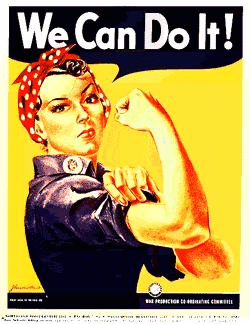

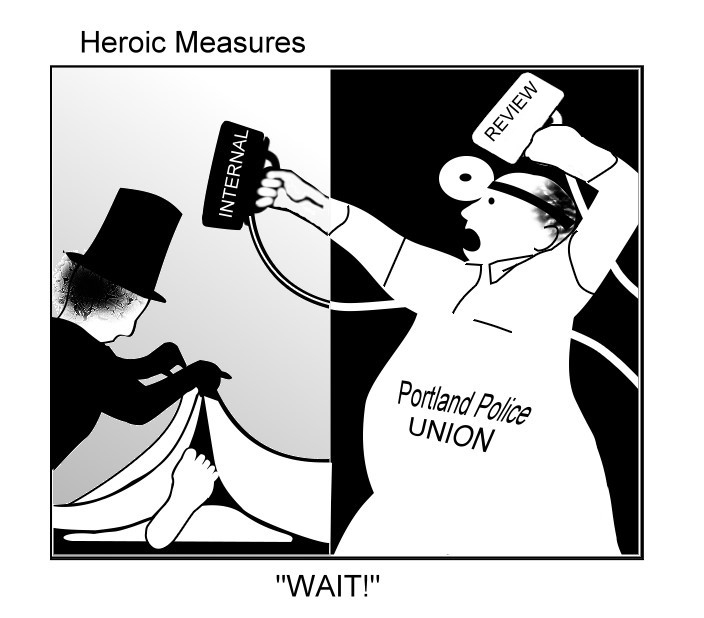


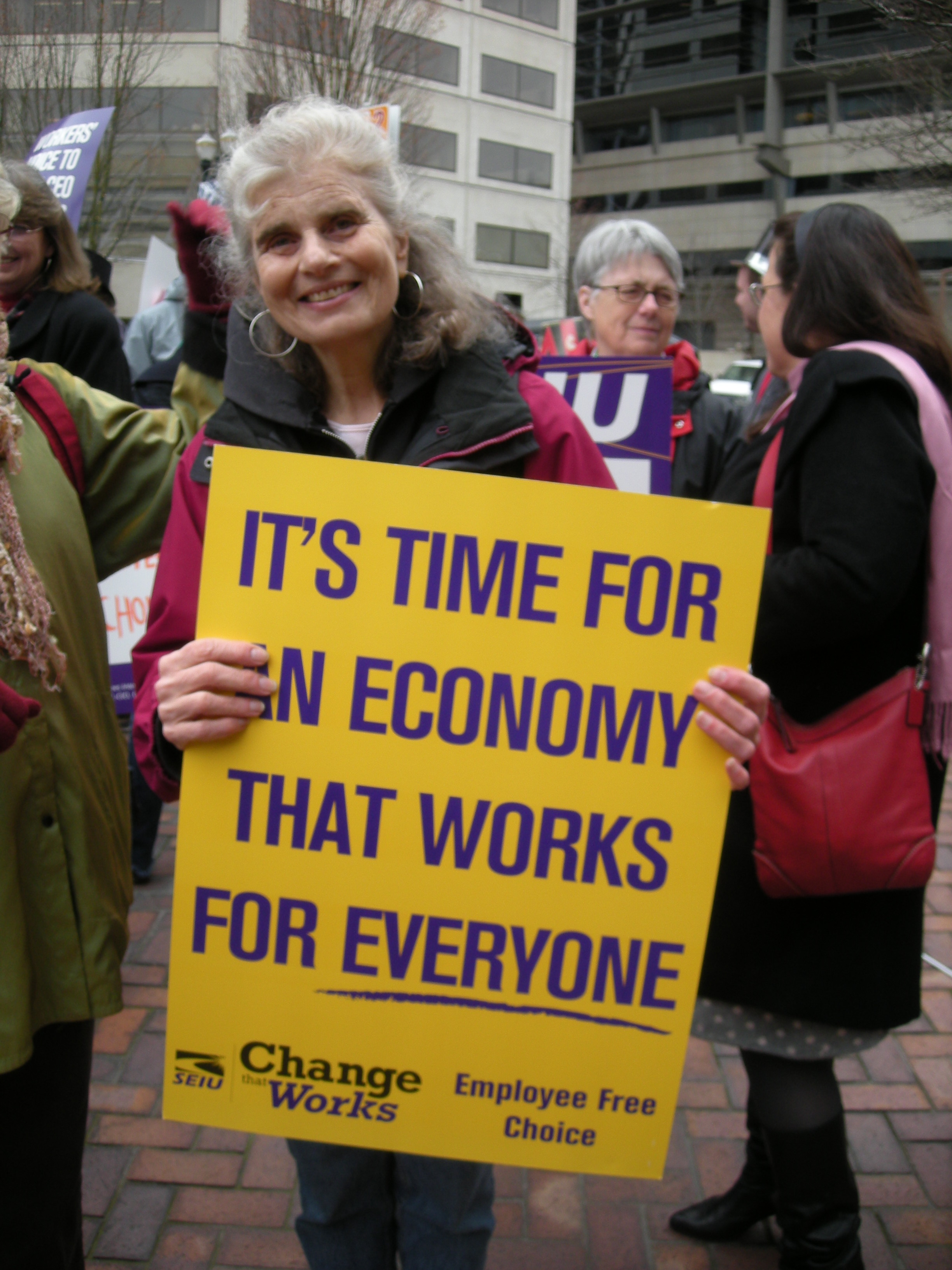


NW Alliance for Alt. Media & Education
(NAAME) dba The Portland Alliance:
Questions, comments, or suggestions: editor@theportlandalliance.orgWe Speak Truth to Power for the 99%
http://wordsmithcollection.blogspot.com/
![]()
Follow @ThePDXAlliance
Contact us: Click Here!
Navigation: FrontPage / Activism / Interactive Calendar / Donate / Flyer / YouTube / Poster / Subscribe / Place Ad / Ad Rates / Online Ads / Advertising / Twitter / News! / Previous Issues / Blog/ Myspace / Facebook1 / Facebook2
Features: Active Community / A Few Words /Arts & Culture / Breaking News / Jobs / / Labor History / Music / NewsBytes / Progressive Directory / Cartoons / Community Calendar / Letters / Poetry / Viewpoints & Commentary
Columns: William Beeman, Ellen Brown, Engelhardt / Dennis Kucinich / Michael Munk / Myers / William Reed / Mark Schwebke / Norman Solomon / Vorpahl / Wittner
Partners: AFD / AMA / B-MediaCollective / Bread&Roses / CAUSA/ CLG/ Common Dreams / CWA / DIA / FSP /ISO / Jobs w\ Justice / KBOO / Labor Radio / LGBTQ / MRG / Milagro / Mosaic / Move-On / NWLaborPress / Occupy / OEA / Occupy PDX / Peace House / The 99% / Peace worker / PCASC / PPRC / Right 2 Dream Too /
Street Roots / Skanner / The Nation / TruthOut / Urban League / VFP / Voz /
Topics: A-F AIPAC / Civil Rights / Coal / Death Penalty / Education / Election 2012 / Fair Trade / F-29 / Environment / Foreclosure /
Topics: G-R Health / Homeless / J-Street / Middle East / Occupy Blog / Peace / Persian / Police / Post Office/ Quotes
Topics: S-Z STRIKE! / Tri-Met / Union / VDay / War & Peace / Women / Waterfront Blues Festival / Writing / WritingResource
Coming Soon: Service Directory / Editing / Flyers / Ground View / Flying Focus / Literacy / Rashad
The Portland Alliance:
Phone: (Cell) (503)-697-1670
Questions, comments, suggestions: editor@theportlandalliance.org or ThePortlandAlliance@gmail.com
© 1981-2019 NAAME NW Alliance for Alternative Media & Education,
dba The Portland Alliance:
All Rights Reserved. A 501C3 Oregon Non-profit Corporation for Public BenefitSupport local media:
B-MediaCollective / Cover The Real News! /Joe Anybody
The Asian Reporter | Kboo | Oregon Peaceworker | Portland.Indymedia.org | The Skanner





